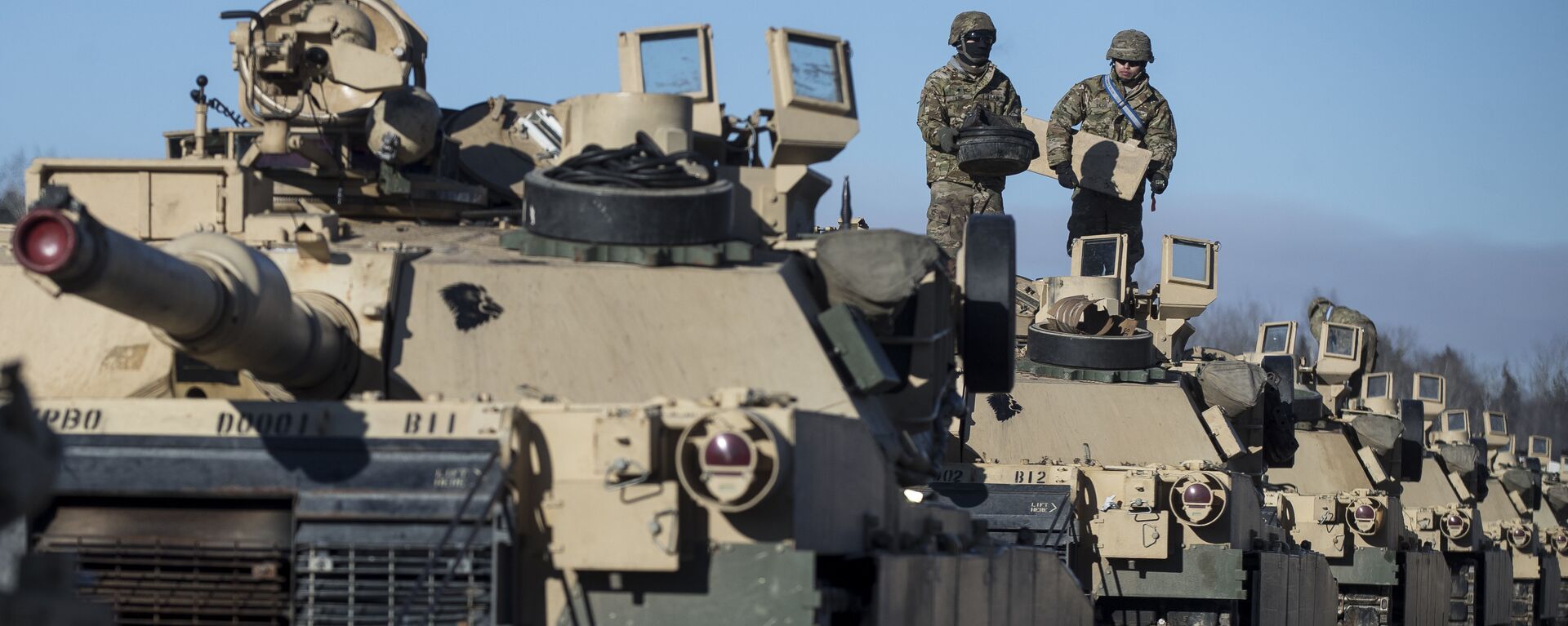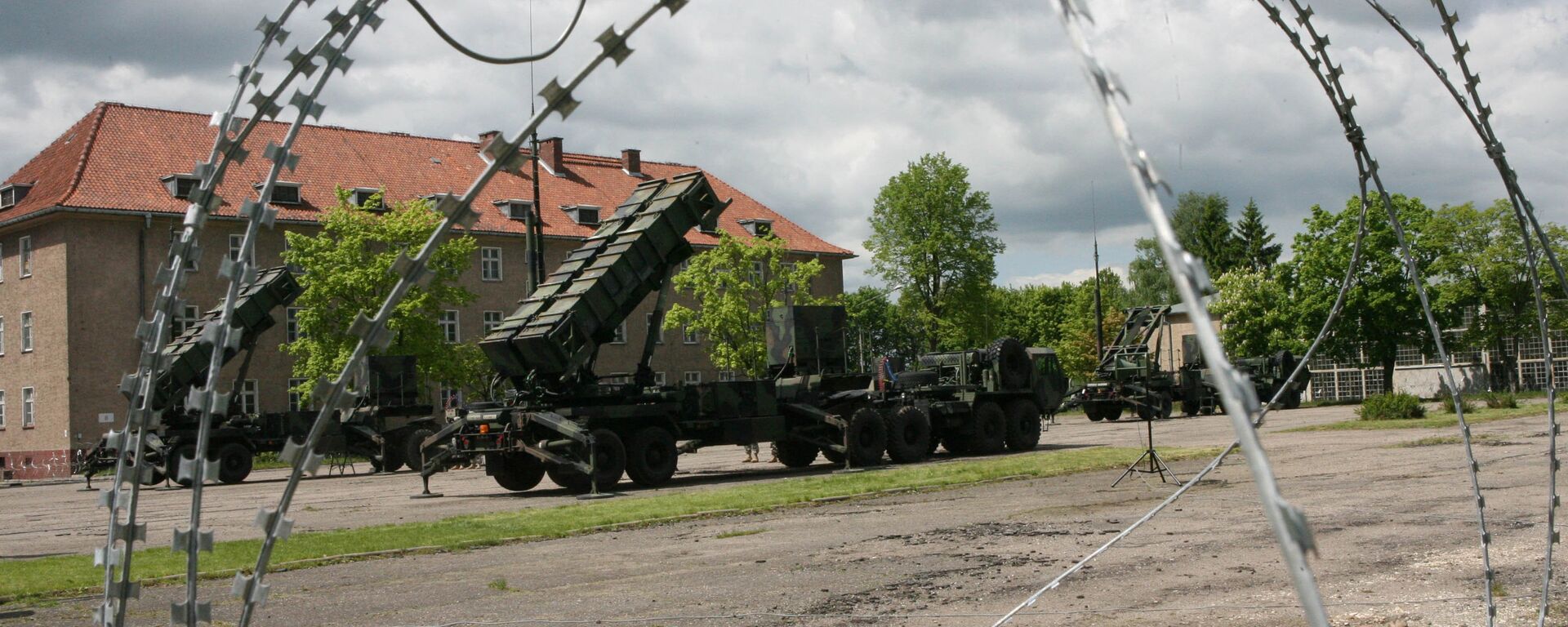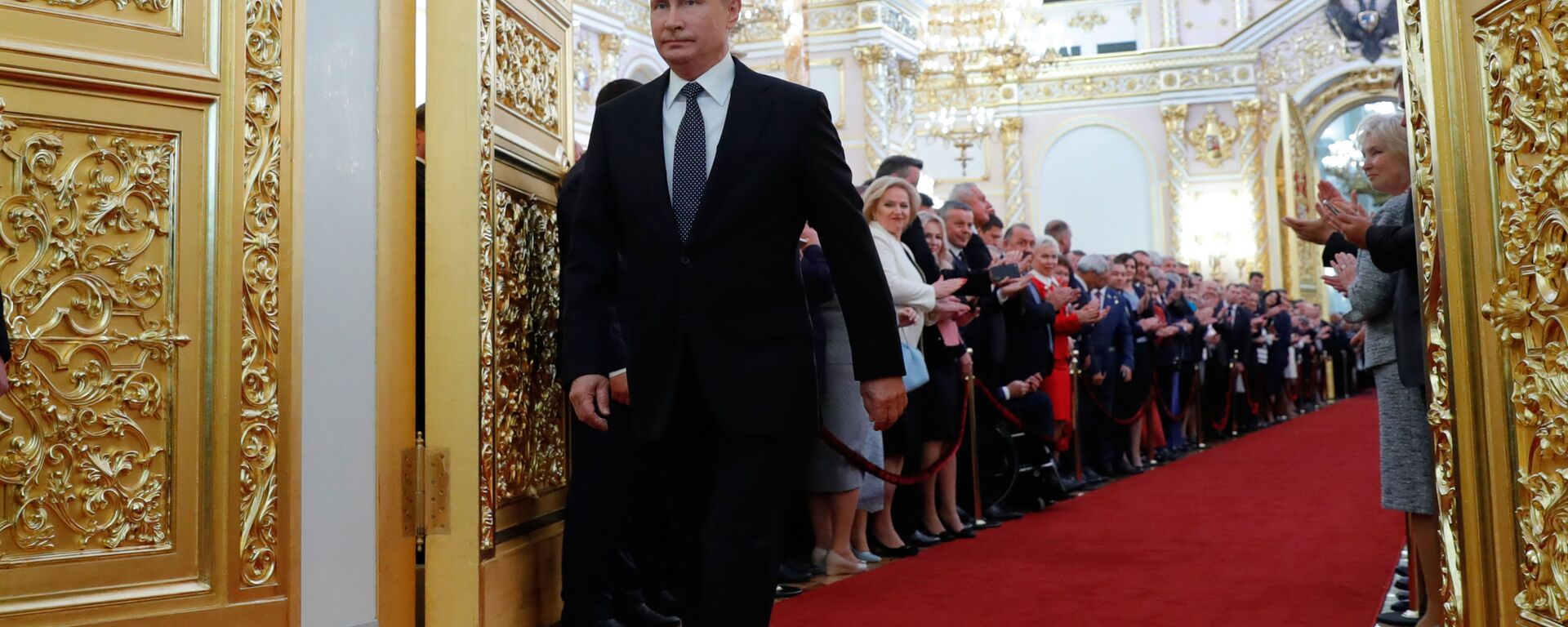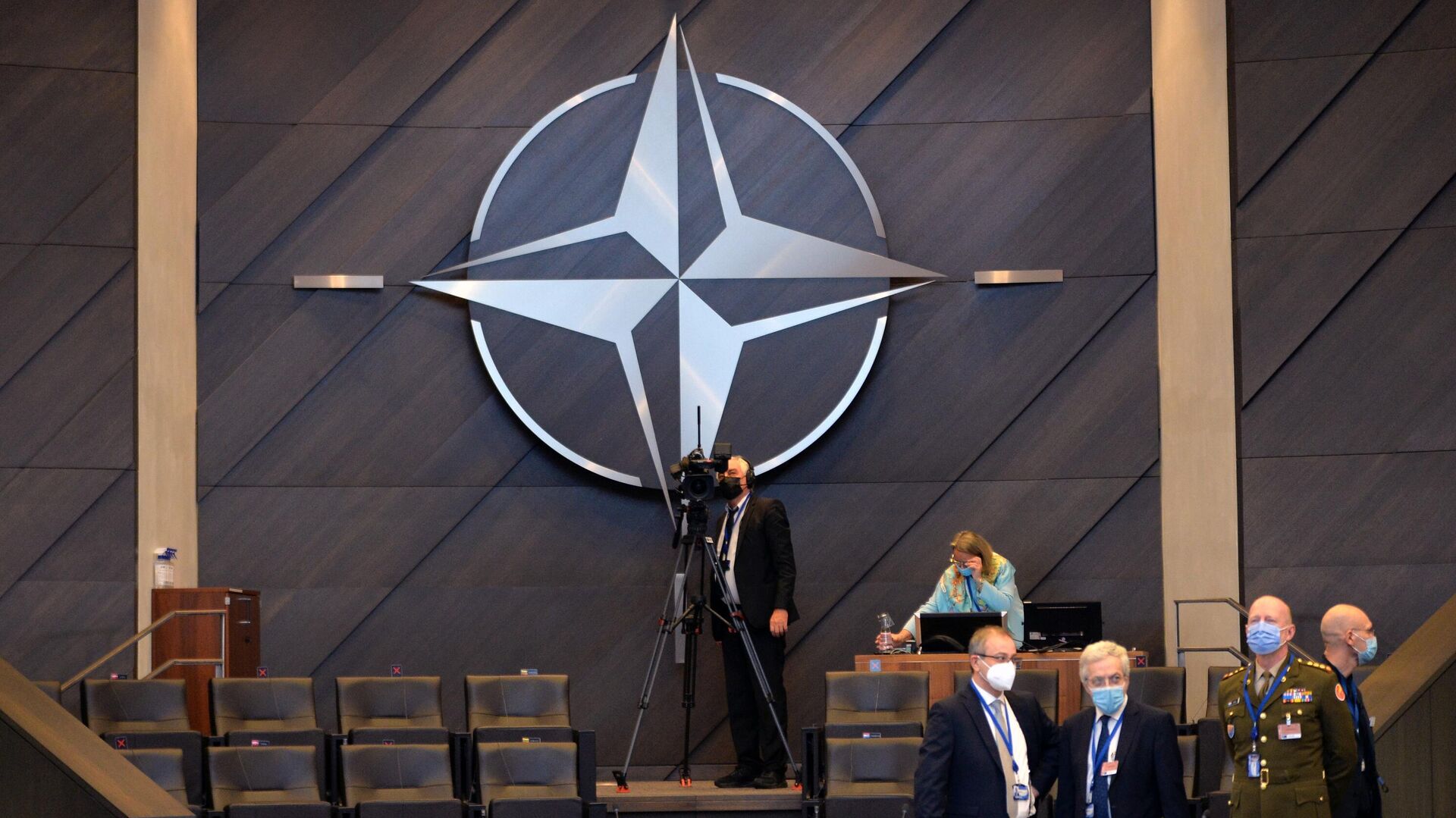https://sputnikglobe.com/20220113/russia-nato-talks-how-the-cold-war-era-hubris-of-the-bloc-limits-pan-european-security-1092239966.html
Russia-NATO Talks: How the Cold War-Era Hubris of the Bloc Limits Pan-European Security
Russia-NATO Talks: How the Cold War-Era Hubris of the Bloc Limits Pan-European Security
Sputnik International
A Russian delegation led by Deputy Foreign Minister Alexander Grushko held a meeting with NATO representatives on 12 January in Brussels, Belgium, to discuss... 13.01.2022, Sputnik International
2022-01-13T22:09+0000
2022-01-13T22:09+0000
2022-01-14T14:14+0000
georgia
world
europe
us
russia
opinion
ukraine
sweden
finland
security
https://cdn1.img.sputnikglobe.com/img/07e6/01/0d/1092235122_0:223:2985:1902_1920x0_80_0_0_30e48c4f55af79ab5474677bd5cb2fc4.jpg
The parties of the Russia-NATO Council consultations have so far failed to find common ground on the issue of what Moscow notes is the transatlantic bloc's eastward expansion. NATO Secretary-General Jens Stoltenberg, in response, stated that NATO will not give up on its "core principles," including its open-door policy for membership to nations including Ukraine and Georgia. Russian Deputy Foreign Minister Grushko warned that Moscow could be left with no other choice than "counter-intimidation" if the parties fail to reverse the current course of events.Why NATO is Unwilling to Reach a Compromise With RussiaThe NATO stance is unsurprising, given that the bloc's purpose depends on the idea of Russian containment, says Dr. Matthew Crosston, professor of political science and executive vice chairman with ModernDiplomacy.eu.NATO's refusal to treat Russia as an equal and legitimate world stage partner has always been at the root of the problem, the Crosston noted.Following the collapse of the USSR in 1991, NATO faced a problem of self-preservation as it was unable to envision a new mission for itself, suggested Crosston: "With no Soviet Union, what is NATO's purpose? Why should it continue to exist?""The easiest path to that end goal was to simply reframe the old Soviet narrative with the Russian Federation flag," he said, adding that, "if Russia is simply the Soviet Union with a new name, then NATO does not need any mission innovation. It does not need any new justification to exist. It doesn't even need to alter any budgets. It can simply....continue."Russian entreaties to create a new vision or a new relationship with NATO have traditionally been met with indifference and, at times, disdain, according to the consultant. Although Moscow has repeatedly and explicitly articulated its concerns with regard to NATO expansion, the US, with a straight face, continues to either willfully misinterpret or simply defy Russia's signals he notes. The reasoning is simple, according to the strategist, as a compromise with Russia "doesn't serve any valuable purpose" for the US-led Western military bloc.Pan-European Peace & Security: It's Not Too LateThere is a silver lining to the recent NATO-Russian Council consultations, according to Hall Gardner, a professor of international politics at the American University of Paris.The academic suggests that NATO’s promises of expansion are, however, based on hubris, instead of reason. Earlier this year, US Secretary of Defence Lloyd Austin revived the topic of NATO membership for Ukraine and Georgia, stressing that the bloc would admit Kiev and Tbilisi if they meet the alliance's requirements. NATO welcomed Kiev and Tbilisi's aspirations to join the bloc in 2008 and 2014, respectively.The bloc is ready to open its doors to Sweden and Finland as well, two nations that have long maintained a non-alignment status. Speaking to Politico in April 2019, Retired US Adm. James Stavridis, a former supreme allied commander for NATO, and Alexander Vershbow, an American deputy secretary general of NATO, suggested that in the next 10 years, Finland and Sweden could be admitted to the alliance.A confrontation with Russia is not in the interests of NATO and other European states, according to Gardner. The academic refers to former Russian President Dmitri Medvedev’s 2008 call for a new European Security Pact, stressing that the suggestion "should have been more fully addressed back then." Medvedev's draft agreement particularly sought to obligate nations and international organisations operating in the Euro-Atlantic region to not strengthen their own security at the cost of other countries and blocs.Gardner believes that it's still possible to use the principle of common security. He proposes establishing a new UN-backed Contact Group that would bring the US, NATO, the EU, Russia, and Ukraine into negotiations to forge a "regional peace and sustainable development community.”
https://sputnikglobe.com/20220111/what-are-major-reasons-behind-washingtons-unwillingness-to-accept-russias-nato-proposals-1092184191.html
https://sputnikglobe.com/20211223/nato-expansion-to-the-east-is-unacceptable-for-russia-putin-says-1091745630.html
https://sputnikglobe.com/20211223/russia-is-back-moscow-wont-back-down-ending-era-of-nato-expansion-is-possible-observers-say-1091758619.html
georgia
ukraine
sweden
finland
Sputnik International
feedback@sputniknews.com
+74956456601
MIA „Rosiya Segodnya“
2022
News
en_EN
Sputnik International
feedback@sputniknews.com
+74956456601
MIA „Rosiya Segodnya“
Sputnik International
feedback@sputniknews.com
+74956456601
MIA „Rosiya Segodnya“
georgia, europe, us, opinion, ukraine, sweden, finland, security, nato expansion, military response, nato
georgia, europe, us, opinion, ukraine, sweden, finland, security, nato expansion, military response, nato
Russia-NATO Talks: How the Cold War-Era Hubris of the Bloc Limits Pan-European Security
22:09 GMT 13.01.2022 (Updated: 14:14 GMT 14.01.2022) A Russian delegation led by Deputy Foreign Minister Alexander Grushko held a meeting with NATO representatives on 12 January in Brussels, Belgium, to discuss security proposals brought forward by Moscow in mid-December 2021. Dr. Matthew Crosston and Professor Hall Gardner discuss the possibility of a NATO-Russia compromise.
The parties of the Russia-NATO Council consultations have so far failed to find common ground on the issue of what Moscow notes is the transatlantic bloc's eastward expansion. NATO Secretary-General Jens Stoltenberg, in response, stated that NATO will not give up on its "core principles," including its open-door policy for membership to nations including Ukraine and Georgia. Russian Deputy Foreign Minister Grushko warned that Moscow could be left with no other choice than "counter-intimidation" if the parties fail to reverse the current course of events.
Why NATO is Unwilling to Reach a Compromise With Russia
The NATO stance is unsurprising, given that the bloc's purpose depends on the idea of Russian containment, says Dr. Matthew Crosston, professor of political science and executive vice chairman with ModernDiplomacy.eu.
"I believe NATO will do what it has traditionally done since the dissolution of the Soviet Union in 1991, which is truly part of the ultimate problem: it will not acknowledge Russian criticism, it will not directly or explicitly answer Russian questions, and it will not entertain any perspective other than its original founding mission - to counter the one true threat to world stability, which for NATO has always been perceived as a powerful, prosperous, and influential Russian Federation," stated Crosston.
NATO's refusal to treat Russia as an equal and legitimate world stage partner has always been at the root of the problem, the Crosston noted.

11 January 2022, 17:41 GMT
Following the collapse of the USSR in 1991, NATO faced a problem of self-preservation as it was unable to envision a new mission for itself, suggested Crosston: "With no Soviet Union, what is NATO's purpose? Why should it continue to exist?"
"The easiest path to that end goal was to simply reframe the old Soviet narrative with the Russian Federation flag," he said, adding that, "if Russia is simply the Soviet Union with a new name, then NATO does not need any mission innovation. It does not need any new justification to exist. It doesn't even need to alter any budgets. It can simply....continue."
Russian entreaties to create a new vision or a new relationship with NATO have traditionally been met with indifference and, at times, disdain, according to the consultant. Although Moscow has
repeatedly and explicitly articulated its concerns with regard to NATO expansion, the US, with a straight face, continues to either willfully misinterpret or simply defy Russia's signals he notes. The reasoning is simple, according to the strategist, as a compromise with Russia "doesn't serve any valuable purpose" for the US-led Western military bloc.

23 December 2021, 10:34 GMT
Pan-European Peace & Security: It's Not Too Late
There is a silver lining to the recent NATO-Russian Council consultations, according to Hall Gardner, a professor of international politics at the American University of Paris.
"The positive outcome of these discussions," Gardner says, "is that NATO and Russia appear to have finally come to the bargaining table and have promised to thoroughly discuss the major security and defense issues that impact Ukraine, the Black Sea and eastern Europe in general – issues that should have been more thoroughly negotiated years ago."
The academic suggests that NATO’s promises of expansion are, however, based on hubris, instead of reason. Earlier this year, US Secretary of Defence Lloyd Austin revived the topic of NATO membership for Ukraine and Georgia, stressing that the bloc would admit Kiev and Tbilisi if they meet the alliance's requirements. NATO welcomed Kiev and Tbilisi's aspirations to join the bloc in 2008 and 2014, respectively.
The bloc is ready to open its doors to Sweden and Finland as well, two nations that have long maintained a non-alignment status.
Speaking to Politico in April 2019, Retired US Adm. James Stavridis, a former supreme allied commander for NATO, and Alexander Vershbow, an American deputy secretary general of NATO, suggested that in the next 10 years, Finland and Sweden could be admitted to the alliance.

23 December 2021, 19:06 GMT
A confrontation with Russia is not in the interests of NATO and other European states, according to Gardner. The academic refers to former Russian President Dmitri Medvedev’s 2008 call for a new European Security Pact, stressing that the suggestion "should have been more fully addressed back then." Medvedev's draft agreement particularly sought to obligate nations and international organisations operating in the Euro-Atlantic region to not strengthen their own security at the cost of other countries and blocs.
Gardner believes that it's still possible
to use the principle of common security. He proposes establishing a new UN-backed Contact Group that would bring the US, NATO, the EU, Russia, and Ukraine into negotiations to forge a "regional peace and sustainable development community.”
"The task to achieve a European Peace accord will prove difficult but not insurmountable if both sides re-evaluate their presumed 'vital' interests in the recognition that a peaceful settlement is to be preferred to continued tensions and a massive military build-up," according to the academic.







